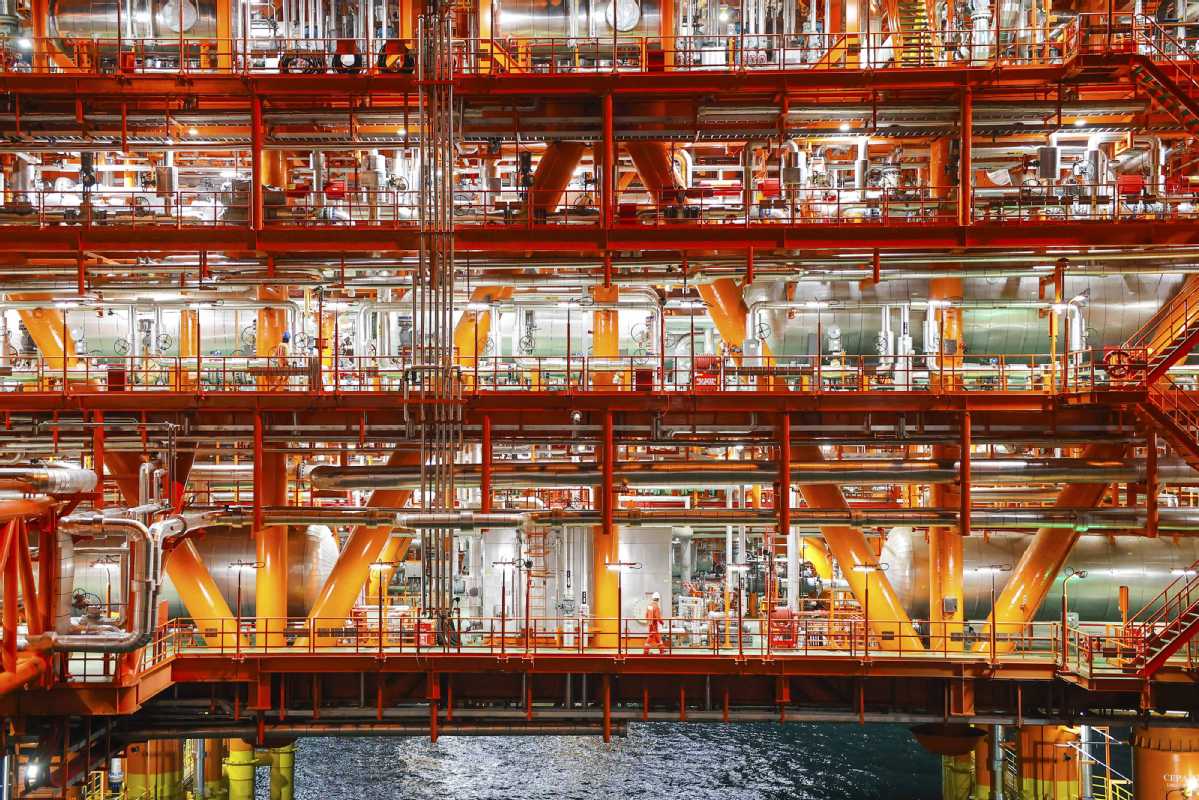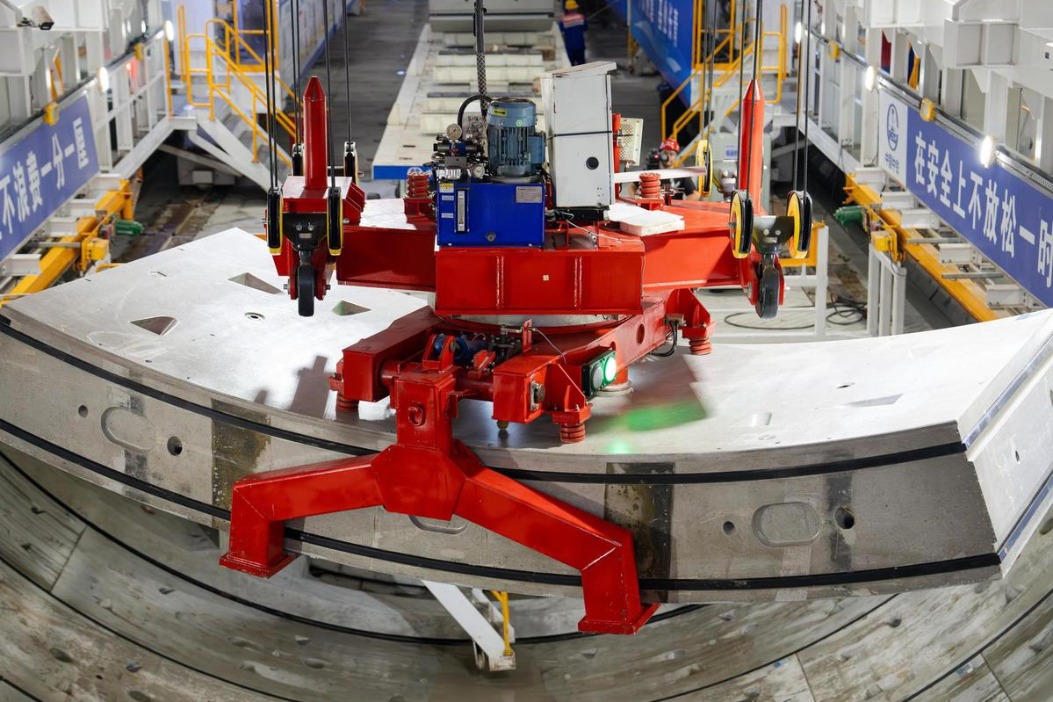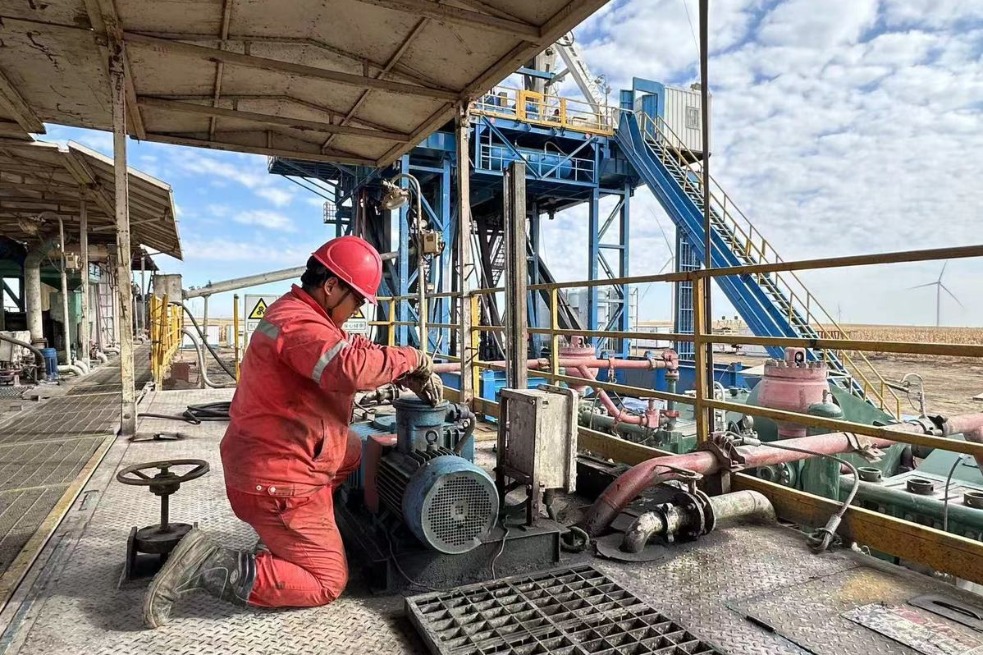Nation furthers ultra-deep efforts
New consortium established to support oil, gas exploration, ensure energy security


The new consortium set up by the government to search for ultra-deep oil and gas reserves and tackle harder-to-extract non-conventional resources will further ensure domestic energy security, said industry experts.
On Monday, China set up an entity — the Innovation Consortium for Deep and Ultra-deep Oil and Gas Exploration and Development — whose aim is to gather wisdom and build strength to jointly build an industry chain spanning ultra-deep oil and gas exploration to engineering.
The consortium's formation is in response to the government's call to the energy industry to boost new quality productive forces and contribute to the country's energy security, said China National Petroleum Corp.
New quality productive forces refer to technological innovations, data, smart or intelligent technologies and the like, that can drive overall increases in productivity and enhance new dynamics for economic growth.
The consortium is made up of two national oil producers — CNPC and China Petroleum and Chemical Corp (Sinopec) — and other State firms, including China Aerospace Science and Industry Corp, a major State-owned space contractor, China National Machinery Industry Corp, China Baowu Steel Group Corp, Dongfang Electric Group and China Minmetals Corp.
Chen Lin, a senior analyst who covers upstream research for global consultancy Rystad Energy, said the consortium will ensure the overall supply of petroleum remain on an upward trajectory in the near future.
In recent years, the development of onshore conventional oil and gas in China has been confronted with multiple challenges like insufficient resource replacement, matured oil and gas fields, and rapid production decline, making replacement resources in new areas crucial for adequate oil and gas supplies in the future, Chen said.
"China has significant potential in deep reservoirs and it is important that replacement zones for future reserve growth and production increase," she said.
While CNPC has drilled two exploration wells this year, numerous technical difficulties remain. The formation of this consortium will help leverage the technical strengths of each unit to overcome the challenges of deep and ultra-deep resource exploration, ensuring the security of the country's energy supply, she said.
In recent years, China has been stepping up efforts in ultra-deep oil well drilling to ensure domestic energy self-sufficiency. The country's first scientific exploration well with a depth of over 10,000 meters — it is in Northwest China's Xinjiang Uygur autonomous region — broke through the 10,000-meter depth mark in March, making it the second-deepest onshore well globally and the deepest in Asia, said its operator CNPC.
Located in the Taklimakan Desert in the Tarim Basin, the Shenditake 1 well, a milestone in deep-earth scientific research and ultra-deep oil and gas exploration, is expected to reach a designed depth of 11,100 meters upon completion, it said.
It is the first time that China has drilled a vertical borehole over 10,000 meters deep, with drilling facing more severe challenges such as temperatures of over 200 C and prohibitive pressures.
China's energy self-sufficiency rate continued to rise last year, increasing to 85.6 percent, up 7.2 percentage points compared to the 2016 levels, said Wu Mouyuan, vice-president of the China National Petroleum Corp Economics and Technology Research Institute in Beijing.
The robust support of energy supply additions has contributed significantly to economic recovery. The implementation of economic stimulus policies and the rapid market recovery last year have driven consumption demand for energy like petroleum and natural gas, he said.
Figures released by the institute revealed that oil and gas production in China has continued to grow for several consecutive years, with annual crude oil production last year reaching about 209 million metric tons, up 2 percent year-on-year.
This growth trend has been sustained over six consecutive years since 2018, and it is anticipated to continue with a slight increase this year, it said.
According to CNPC, the consortium will step up drilling conventional resources at ultra-deep wells that extend as much as 10,000 meters below the surface in places like Xinjiang, where CNPC and Sinopec are major players. It will also seek to tap deep shale oil and coal-seam gas resources, it said.




































